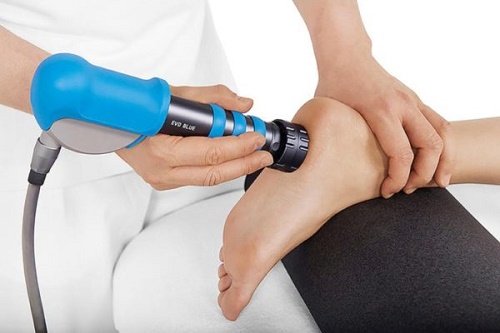Shockwave Therapy: Treating Pain Effectively

If you suffer from heel spurs, or plantar fasciitis as it is more properly known, you are not alone. Over half a million people in the UK suffer from the condition each year, leaving them in pain and stopping them from going about their daily routine as a result. If you adored this article so you would like to collect more info about shockwave therapy shoulder generously visit the web site.It is a real problem for many, and the feeling of despair as one trawls around the internet for a clear answer on how to treat it leaves many feeling helpless and unable to overcome the pain.
Unfortunately, the risk developing the condition is not discriminatory, although it typically affects athletes, runners, and people who are very overweight. It also affects people who need to stand up on hard surfaces for extended periods of time, for example, hairdressers, shop assistants, and chefs.
Physiotherapy and steroid injections can help to relieve the symptoms of plantar fasciitis in the majority of cases, although for chronic cases surgery has been the only option available to patients. The problem with this, however, is that surgery carries a lot of risks and can lead to complications, including infection and is not a fail-safe method of treating the condition, with only a 50% success rate. In addition to this, the recovery time can take between six to eight weeks.
Luckily, patients suffering from chronic pain in their feet and ankles can now undergo shockwave therapy which is a non-surgical, highly successful way of treating plantar fasciitis, and also offers a much quicker recovery time. It works by delivering a radial shockwave through the skin's surface and targeting the damaged or injured tissue. The shockwave provokes an inflammatory response within the tissue which encourages the area to heal quicker since blood vessels are regenerated quicker. In addition to this, it also acts as pain relief.
On top of the benefits explained above, shockwave therapy also provides the following advantages over surgery:
Level 1 and 2 clinical trial data supports efficacy 2 3 4 5
Proven non-surgical, non-invasive technology
Quick and simple treatment
No anaesthetics needed
Very short rehabilitation period
In addition to treating plantar fasciitis, shockwave therapy has other applications, including the treatment of severe tendonitis suffered, for example, by tennis and golf players; shoulder pain; and painful symptoms in the Achilles heels. In the case of tendonitis, if it becomes severe and ruptures, the only option available has been to treat the injury with surgery. Unfortunately, in the case of a rupture this is still the case.
